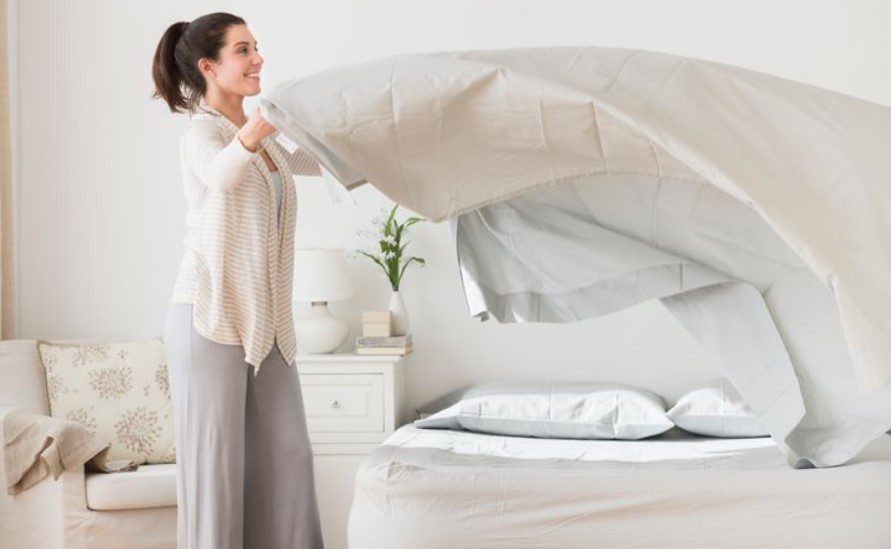The cold winter months can be a difficult time. Add in global pandemic and stay-at-home orders into the mix, and things only become worse. We all know that feeling of isolation and loneliness during the winter season. The usual methods for combating SAD (seasonal affective disorder), like meeting up with friends or traveling are no longer viable options at this time of year. Mental experts shared some great advice for making the next few months just a little bit easier. Here are some tips on how to fight loneliness in winter season.
1. MANAGE YOUR EXPECTATIONS

2020 has been a little ‘normal winter so far and we expect the trend to continue this year, which means you should prepare for anything. Gersten says, “This isn’t going to be a normal winter. While it’s more than OK to grieve what we’ve lost, shifting expectations can make it easier to manage so you’re better prepared for the reality of this year.” Rachel Klechevsky, a licensed master social worker with Tia added, “Sometimes what we really need is to just accept that winters tend to be difficult. While we are working on acceptance, we can figure out how best to navigate it.”
2. THINK ABOUT WHAT SELF-CARE MEANS TO YOU

We all have our favorite ways to spend time relaxing, whether it’s reading a good mystery novel or taking an hour-long bath. It’s important to be able to refocus and reset your mind, so do what you can at the moment. Make a reading list or put yourself on your local library’s waiting list for popular books, stock up on bath salts and calming candles. Your future self will thank you for this.
3. MAKE YOUR NEEDS KNOWN

Sometimes, we just need to share our feelings with someone. You can’t always rely on yourself for the company. Gersten said, “Honestly and openness is always key. Ask for what you want the first time you feel the need, rather than letting it fester and cause more irritability,” Klechevsky added, “Begin by stating that this is an open and ongoing conversation and that it is meant to keep everyone feeling comfortable and safe in their home.”
4. START A NEW ROUTINE

A weekly or daily routine can be a great way to stay on top of your mental health. A licensed clinical social worker with the women’s health platform Tia, Sarah Powers, stresses that you don’t have too many commitments in order for this method to work – just something small every day or week would do the trick. It’s more important just to make sure every action has intention and plan so it can be organized accordingly. “This can be as simple as stretching your body when you wake up, showering and then having your morning coffee; going for a walk at lunch; setting time aside in the evening to read, paint, journal, or some other form of self-care. Just be sure to keep doing all of it with intention, and not randomly. Over time, the familiarity and predictability of the routine will bring a sense of calm and help you feel a little more in control,” she said.
5. DIFFERENTIATE WORRIES AND CONCERNS

Powers says, “It’s important to distinguish whether what you’re thinking about winter quarantining is a worry or a concern. Worries are things that might happen in the future. They take up space in your mind with the endless possibilities of what could happen and make you feel out of control.” It’s always smart to be prepared for the worst, especially when you can’t control everything. Imagine if your plans were ruined because of bad weather, So make sure that even though it’s out of our hands now, we’ve planned accordingly by stocking up on movies or TV shows worth watching during these rainy days. When you are faced with difficult situations, it is helpful to focus on things that make your life more comfortable and stress-free.
6. DIFFERENTIATE LONELINESS AND SIMPLY BEING ALONE

Being physically alone is not necessarily a sign of loneliness. A lonely person may seek out company, or an isolated individual can enjoy their own thoughts as much as they want without feeling guilty for it. “Aloneness can feel introspective, comforting, and even enjoyable. Loneliness can feel deeply sad and can bring up feelings of self-consciousness or low self-esteem,” according to Klechevks. Some people like having solo time, and that’s totally fine. It doesn’t make them any less social than the next person. If you find yourself dealing with self-doubt and negative thoughts, it’s time to implement your winter plans.
7. TREAT YOURSELF TO SOME COZY, COMFORTING UPGRADES

You can make your home a place where you’d rather spend time than escape from. Klechevsky suggests changing up the décor with new photos or artwork, swapping out old furniture in order to get more feng shui balance, and adding plants for greenery throughout the house. Why not buy yourself a new bedding set, pajamas, or a cozy sweatsuit? According to Powers, scented candles are a great way to signal your mind and body that it’s time for relaxation. They can help you de-stress before bed or while reading in the evening.
8. GET OUTSIDE

Our mental health experts agree that even if it’s cold or snowy outside, you should go out for a walk. They say the benefits are worth the effort. Gersten says, “As much as you can, carve out time in your day to spend some time outside. Maybe it’s on your lunch break, or in the morning versus at night, but do what you can when you can.” The best way to start your day is with coffee on the front porch or taking a short walk. You can also try replacing old commutes by walking instead of driving and buses, if possible.
9. HAVE SOME EMPATHY FOR YOURSELF

It’s always a good idea to have goals, but don’t forget that you’re only human. Some weeks you may find it easy and enjoyable to cook a healthy dinner every night, but just because your body is craving the comfort food of Domino’s instead of any one-pot meal is no reason to self-blame. Powers said, “Celebrate the small victories like getting outside for five minutes or changing out of your sweatpants into jeans. It’s all about altering our expectations and perceptions of what constitutes a “productive” day.”
If you know someone who might like this, please click “Share”!




